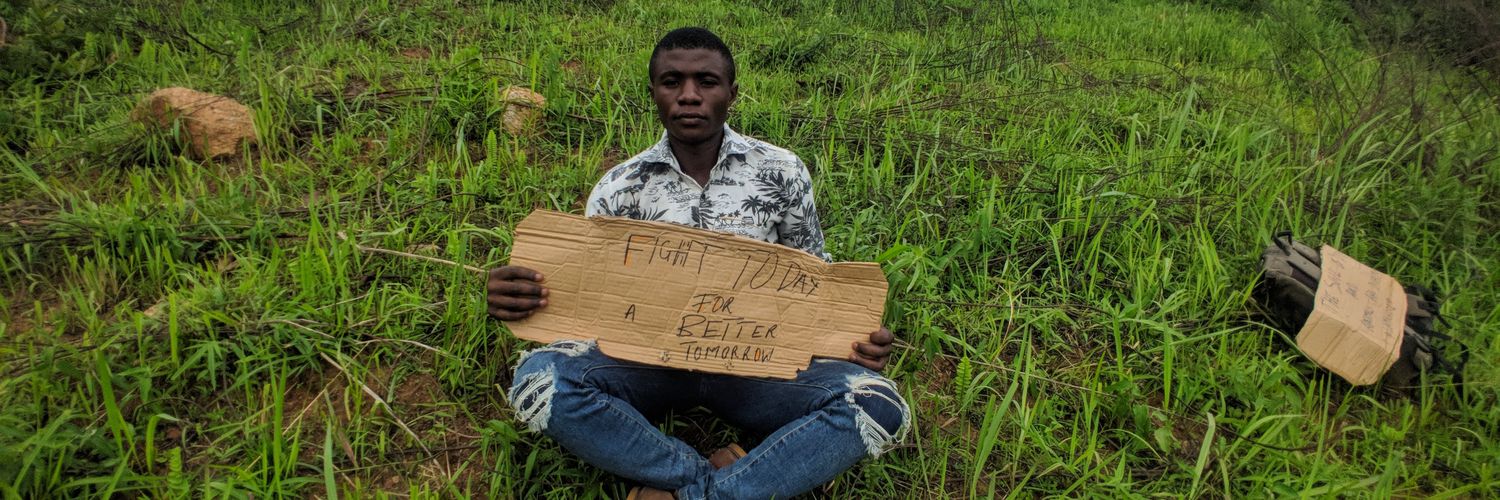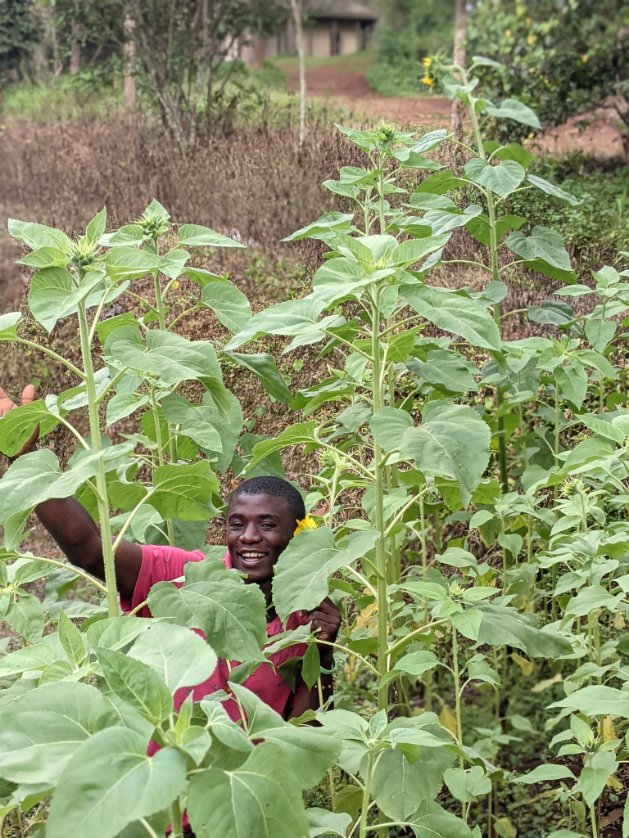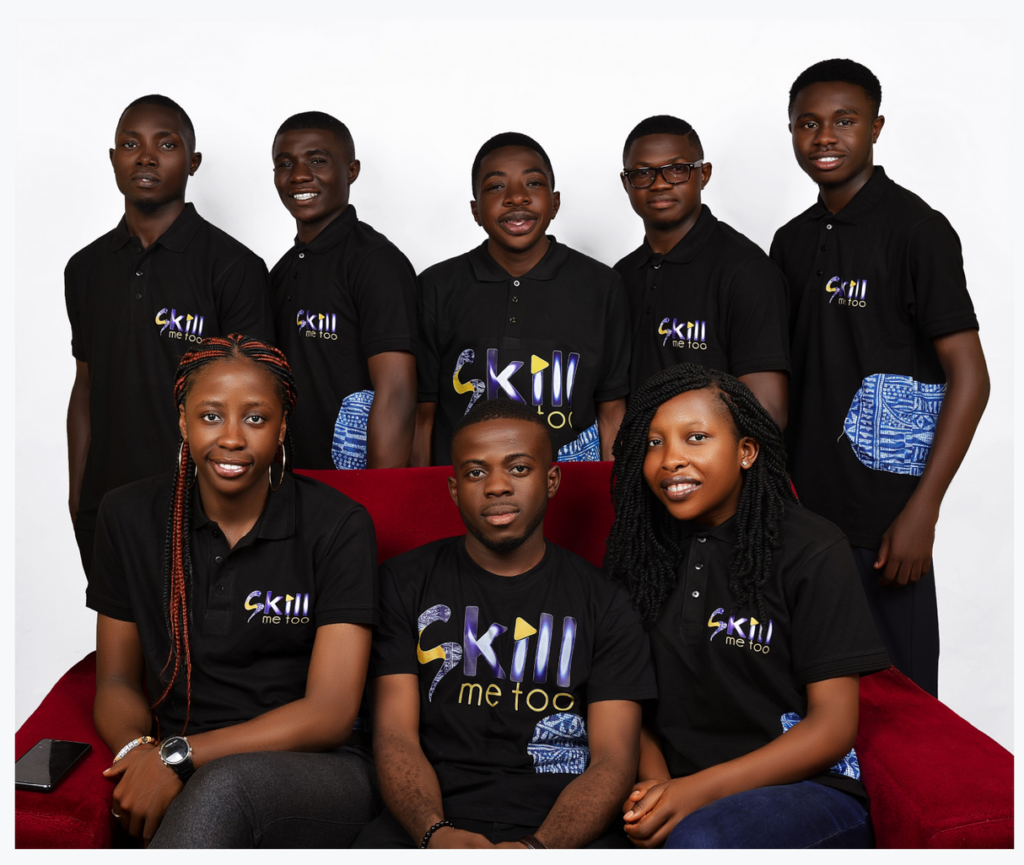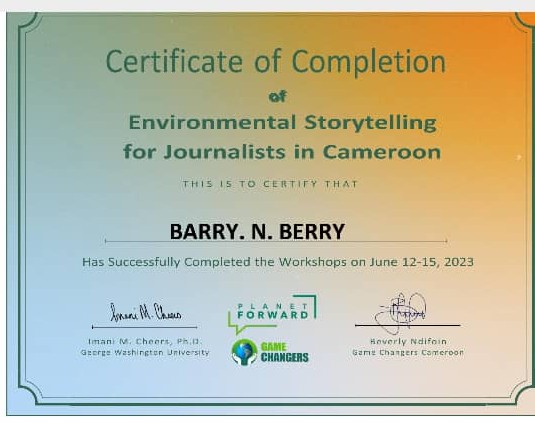
Part 2 MARK STATMAN: MEXICO AND THE POETRY OF GRIEF AND CELEBRATION
Part 2 of my interview with Mark Statman looks closely at Mark’s Latin American poetic influences, his life in Mexico and ends with an extract


I interviewed Smith Barry Berry, a climate change and gender activist and founder of Cameroon Environmental Champions. Smith Barry Berry talked about environmental storytelling, Skillmetoo and how people in Cameroon are tackling climate and ecological breakdown.
Leslie: Can you tell us stories of how people like you are tackling the climate & ecological emergency in Cameroon?
Smith Barry: I’m called Smith Barry Berry a student at the university of Dschang in Cameroon. I’m a climate and gender activist. I started my activism at the age of seven. Cameroon is one of the countries in the Sub-Sahara region that is being damaged by climate change like many other African countries. Cameroon a country blessed with great vegetation. Rich in biodiversity etc .
Climate change is affecting many sectors in the agricultural, forestry, energy and water sectors. The result is the country has lost large amounts of fauna and flora. Also, famine caused by drought and scarcity of potable water has caused fights among famers and grazers in some Cameroon villages. There are other effects: for instance, in Bafou, a village found in the west region of Cameroon, absence of potable water has caused poor sanitation, increasing the rate of diseases. So, as you can see, the basic problems go on and on.
The creation of the national observatory committee in charge of climate change by the head of state has really helped curb climate change.
Many organisations such as embassies, NGOs and government ministries, work very hard to make Cameroon sustainable.
We have youths such Madam Patu, a woman I look up to, who works in transforming plastic waste into reusable artifacts.
As a climate activist I train agriculturalists to implement sustainable agricultural methods such as agro-forestry to help limit the use of harmful pesticides and insecticides.
We encourage the planting of trees around water catchment areas to help restore and purify water
In the energy sector the government of Cameroon, with the help of FEICOM, supports councils to be go green and become green cities – for instance through the implementation of urban solar panels.
In October I will be involved in a tree-planting project called the Greening our Primary Schools with the slogan ONE CHILD ONE TREE.
We can see that Cameroon is really striving to achieve the 2030 Sustainable Development Goal objectives.

Leslie: What does Skillsmetoo do your young people? What have you learned there and how are you putting it to use?
Smith Barry: Skillmetoo was founded in 2020. It operates a youth-led ideology. The aim is to orientate young people to take life choices that reduce the high levels of African unemployment.
Skillmetoo trains, orientates and accompanies the youths in their projects and self-generated enterprises. Skillmetoo is also a hub for children to learn more about Africa.
Skillmetoo trained me to have skills that help with leadership and in my day-to-day work. With this competence I can train people to lead with confidence. As a climate and gender activist this has really helped me know when to do things, how to go about it, and how to implement activities.
Leslie: Tell us about environmental storytelling – the audience, the tellers, where the stories come from and what they motivate their audience to do.
Smith Barry: Environmental storytelling is a project characteristic of Cameroon, although it may have started in some other African countries. Thanks to my mentor, Beverly Ndifor, I wrote an environmental story called BA’AKA. It’s a picture of an indigenous African community, the Pygmies. The main character is a girl called ZURI who stands up for her community, driving away the tree-cutters who endanger Pygmy culture. So at the end of the story, her actions are praised by the international community for giving women a real say in making decisions.
In Cameroon we had 12 participants from different zones and all walks of life. The stories are drawn from pollution, deforestation, plastic transformation, water etc and are published on Planet Forward, a USA-based organization with a diverse, world-wide audience.

What motivates the audience is the truth of the stories, how concrete they are and how skilfully they’re told.
Leslie: What actions do Fridays For Future Africa carry out in Cameroon?
Smith Barry: I want to congratulate Greta for implementing FFF (Fridays for Future), which is a wonderful project. However, as a member of MAPA (Most Affected People and Areas) in Africa as well as representing Cameroon in the FFF world, I won’t lie but FFF AFRICA do not turn out for Cameroon. I can say the problem is us, because most youths hide what they do and don’t act as part of one family. But we are preparing a new plan of action to get some of our members to be part of climate negotiations, organize climate walks and promote climate action in diverse ways.
Leslie: What have been the key events in your life so far that have made you take action about the climate/ecological emergency?
Smith Barry: Everything arounds me motivates me to stand up for climate. As a youth I can’t just watch children travelling kilometres to get drinking water. I can’t sit and fold my arms when I see crops dying or compensation money given to climate-affected areas pocketed by the rich.
At the age of seven I saw floods destroying homes and extreme heat, while my friends complained but didn’t act.
So what did I do?
Because my aim is to achieve a positive legacy before I leave this world.
And I’m sending out a plea to people of good will to help me achieve my dreams of creating a tree nursery of 5000 trees of different species. To help me with material or finance this will help the planet.
Leslie: What are and have been the most important things that make you love Africa?
Smith Barry: Africa, like they say, is Mother Nature. It’s a continent made of diverse cultures, languages and great landscapes full of biodiversity. Also, the people are caring and hospitable. It all makes me want to stay and contribute to the green project for Africa.
There is just so much I love about her.
Next week I interview writer Grace Lapointe about challenging disableism
ABOUT LESLIE TATE’S BOOK:

Part 2 of my interview with Mark Statman looks closely at Mark’s Latin American poetic influences, his life in Mexico and ends with an extract

I interviewed international poet and translator Mark Statman about Volverse/Volver, his 14th published collection. Mark, who has won national arts awards, is Emeritus Professor of Literary

I interviewed Lisa Dart, finalist in the Grolier, Aesthetica and Troubadour Poetry Prizes and author of The Linguistics of Light (poems, Salt, 2008), Fathom (prose

I interviewed writer Julia Lee Barclay-Morton about her experience of autism. Julia began as an experimental dramatist in New York, moving to the UK to

I interviewed Gillean McDougall from Glasgow, who edited the collaborative projects Honest Error (on Charles Rennie Mackintosh and his wife Margaret Macdonald) and Writing the
| Cookie | Duration | Description |
|---|---|---|
| cookielawinfo-checkbox-analytics | 11 months | This cookie is set by GDPR Cookie Consent plugin. The cookie is used to store the user consent for the cookies in the category "Analytics". |
| cookielawinfo-checkbox-functional | 11 months | The cookie is set by GDPR cookie consent to record the user consent for the cookies in the category "Functional". |
| cookielawinfo-checkbox-necessary | 11 months | This cookie is set by GDPR Cookie Consent plugin. The cookies is used to store the user consent for the cookies in the category "Necessary". |
| cookielawinfo-checkbox-others | 11 months | This cookie is set by GDPR Cookie Consent plugin. The cookie is used to store the user consent for the cookies in the category "Other. |
| cookielawinfo-checkbox-performance | 11 months | This cookie is set by GDPR Cookie Consent plugin. The cookie is used to store the user consent for the cookies in the category "Performance". |
| viewed_cookie_policy | 11 months | The cookie is set by the GDPR Cookie Consent plugin and is used to store whether or not user has consented to the use of cookies. It does not store any personal data. |
3 responses
This is really wonderful thanks alot
Proud of you champ Smith the Founder of Cameroon Environmental champions.
Very motivational….its such a motivation to us as African youths to fight climate change..tuned from kenya